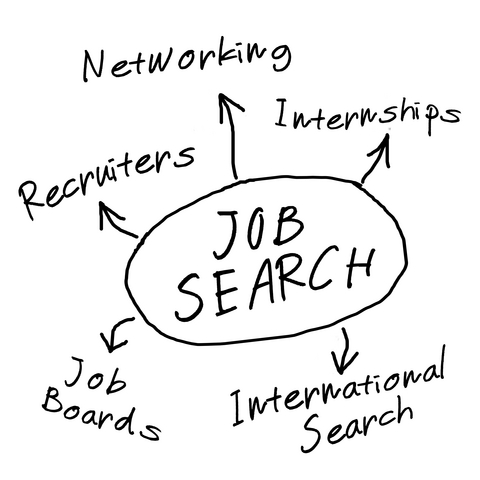A recent poll of recruiters found that the average number of job interviews required to secure a job offer is three.
The magic number, three, does have a practical reality to it. Let’s say that a job applicant has decided to take a career sidestep or a promotion. This candidate has a vast array of transferable skills, lots of relevant qualifications, and some experience, but not a like-for-like experience as the applicant is applying for a new role, rather then the same position within a new organisation.
After an average of 4-5 hrs of interview prep, the nervous career professional attends their first interview that results in a ‘thank you, but no thank you’. A failed first interview for a new role is common, graduates also fall into this same pitfall, as do applicants searching for a big job promotion.
The reason behind the first failed interview is a lack of job understanding. When an experienced employee applies for a similar role in a new business, even if the interview is their first interview, the unexpected questions aren’t that unexpected.
The employer, following a structured job interview process, ask questions and score answers against a list of job criteria that are needed to complete business-as-usual tasks. The experienced applicant, even if they haven’t undertaken a lengthy period of interview preparation, can easily recognise the context of the interview question and present evidence that states they have the required experience.
The first rule of a successful job interview is to identify the job criteria. Appropriate examples, appropriate answers, simply score well.
A career professional wanting to climb the career ladder is applying for a new position. The first interview comes with a surprise, a list of unpredicted job interview questions and/or tests, presentations, and tasks.
Some questions asked may sound simple, and a good answer can be created in the moment by the interviewee, but again, without industry experience and a lack of context a low score is given for an interview question the applicant thought they answered well.
A confident applicant states they have the required skills, and sells themselves, but when an expert interviewer requests specifics to measure competence against the job criteria, the lack of experience shines through creating a deceitful interview identity.
Post job interview reflection is the key to success
Experience creates competence. The more job interviews a career professional attends the more skilled they become at answering tricky interview questions.
Creating a list of the interview questions asked during the first interview allows the skilled applicant to use industry research to help craft a higher-scoring interview answer, using examples that highlight how they meet the job criteria.
This is true when job interview technology is introduced. 98% of the top fortune 500 companies use recruitment automated software. Many shifting interview rounds are now conducted by AVIs – Asynchronous Video Interviews. The computer algorithms search for key terms that are then cross-referenced against the job criteria.
What is important, then, is to possess the ability to offer examples and interview answers that state enough of the essential skills, qualities, and experiences, to ensure a high-scoring answer.
Generally speaking, high-scoring answers come in one of three ways:
- Being highly confident as this increases the number of words per answer
- Having excessive experience that results in the nature spillage of job criteria
- Attending a high number of job interviews relevant to the role to help craft answers that score well
Each job interview process, on average, is three rounds of interviews. Three recruitment rounds x three job interviews is a total of nine interviews. Each interview stage tends to last for sixty minutes, equalling a total of nine hours of interviewing.
Possessing at least nine hours of real interviews, plus a high number of interview preparation hours helps a career professional to become skilled at job interviewing.
Two is better than one
One interview alone isn’t enough.
The reflection after one single job interview isn’t enough for a candidate to become a first-choice applicant.
A list of remembered interview questions can be drawn up and new answers written in preparation for a second interview, which in itself increases the confidence of the interviewee. Once at the second interview, with a second employer, the now confident applicant can have the rug pulled from beneath their feet when 80% of the questions asked aren’t on their recently drawn-up Q&A list created after the first interview.
Each employer, even when recruiting for the same position, in the same sector, may have their own unique job criteria and therefore their own list of unique interview questions.
Over time, the new entry into a sector will find commonly asked job interview questions, which may be phrased differently, but underneath are designed to uncover the same skills, qualities, and experiences.
This is why more is better for applicants who lack experience (graduates, promotions, and entry into a new sector) The more interviews that a job seeker attends helps to improve the interview answers (and the prediction of the interview questions) for the next job interview.
Familiarity breeds confidence
It is the familiarity of the recruitment process that breeds confidence. Experienced candidates applying for the same position in a new business are more inclined to relax during the interview when they become aware that the tricky interview questions are really questions about their business-as-usual tasks.
From a job interview perspective, the lack of sector experience can, sometimes, be overturned, by being an experienced interviewee.
This is why at least three job interviews are needed to gain a job offer:
Job interview 1 – create a baseline of interview questions vs good/poor interview answers
Job interview 2 – recognise common interview questions/sector-related themes/job criteria to help shape interview answers
Job interview 3 – deliver high-scoring interview answers that increase the chance of an interview offer.

What is your interview identity?
Job offers are given to the candidate that the interview panel believes will be the best performing employee.
The content of the interview answers; the sector-related jargon used, relatable examples, industry knowhow, stating the job criteria including the required skills, qualities, and experiences vs the confident communication of competencies (verbal and non-verbal) create the candidate’s interview identity.
After each job interview the interviewee, to develop their interview skills must reflect on how they were perceived by the hiring manager – their interview identity. And make changes to improve how they are viewed in terms of predictable performance once employed.









